
This book provides an overview of Japanese culture and food, including descriptions of staples, information about food production, and recipes.

This book provides an overview of Japanese culture and food, including descriptions of staples, information about food production, and recipes.
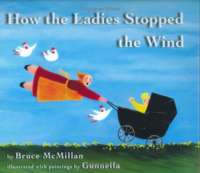
Iceland is a very windy place.Going for a walk can be challenging. The ladies in one village, with the help of the chickens, set out to stop the wind. But the hungry sheep have other plans. Why aren’t there any trees in the Icelandic countryside? This original tale will tell you why and leave you smiling at the determination of the ever singing Icelandic ladies and their steadfast chickens.
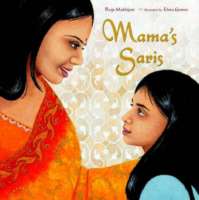
When a young girl eyes her mother’s suitcase full of silk, cotton and embroidered saris, she decides that she, too, should wear one, even though she is too young for such clothing. When the mother finally realizes how important it is for her little girl to feel like a big girl on her seventh birthday, she dresses up her daughter in the folds of a blue sari. The daughter is thrilled to look just like her mother, even if only for a day.
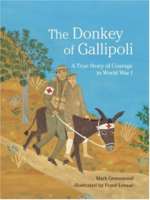
When Jack Simpson was a boy in England, he loved leading donkeys along the beach for a penny a ride. So when he enlists as a stretcher bearer in World War I, his gentle way with those animals soon leads him to his calling. Braving bullets and bombs on the battlefields of Gallipoli, Jack brings a donkey to the aid of 300 Allied soldiers — earning both man and donkey a beloved spot in legend. Two unlikely heroes rescue hundreds of men wounded in war in a poignant picture book based on a true tale of World War I. This engaging nonfiction tale includes a map and brief bios of key characters.
Featured in WOW Review Volume X, Issue 2.
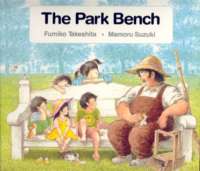
All through the sunny day the white bench in the park provides pleasure for the many people who come by, from the old man taking a walk to the children playing in the park. This is a Japanese/English bilingual book.
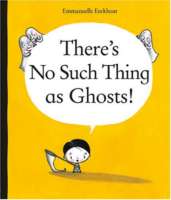
When we moved to our new neighborhood, I had to promise my mother that I would not go near the strange old house on the corner. People say it’s haunted, she whispered. There is no such thing as ghosts! But if there is, I am going to catch one!
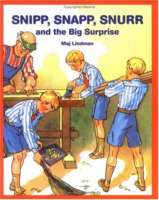
Snipp, Snapp, and Snurr were three little boys who lived in Sweden.They had blue eyes and yellow hair, and they looked very much alike. One time, while their mother was visiting a friend, Snipp, Snapp, and Snurr had a wonderful idea. They would buy a new chair for Mother! They found a man who would make a frame for the chair, and someone who would upholster it. And Nanny said if they bought the fabric, she would sew a cover. There was only one problem. How could they pay for all this? With a lot of hard work, the three little boys came up with the perfect solution.
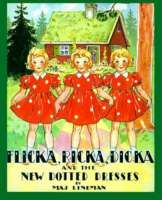
One day, Flicka, Ricka and Dicka get beautiful, new dotted dresses. Then they met Aunt Helma, who needs some help. They work hard to take care of her chickens and cow. But in the end, the dotted dresses are in a very sorry state.
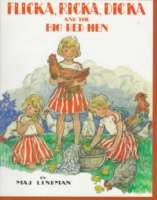
While caring for their aunt’s chickens, three little Swedish sisters are upset when the big red hen disappears.
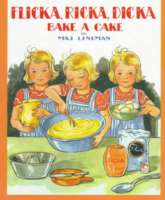
Flicka, Ricka, and Dicka were three little girls who lived in Sweden. They had blue eyes and yellow curls, and they looked very much alike.When they decided to bake a surprise cake for their mother’s birthday, their friend Aunt Betty helped them. She told them how to make Mother’s favorite cake, and she watched them put it in the oven.”Remember — your cake should bake just half an hour, ” Aunt Betty told the girls as she went out.What happen after that surprised everyone!
This story was originally published in the United States in 1955, Flicka, Ricka, Dicka Bake a Cake was one of a series of treasured books created by Swedish author-artist Maj Lindman (1886-1972). She also wrote and illustrated stories about three little Swedish boys, Snipp, Snapp, and Snurr.